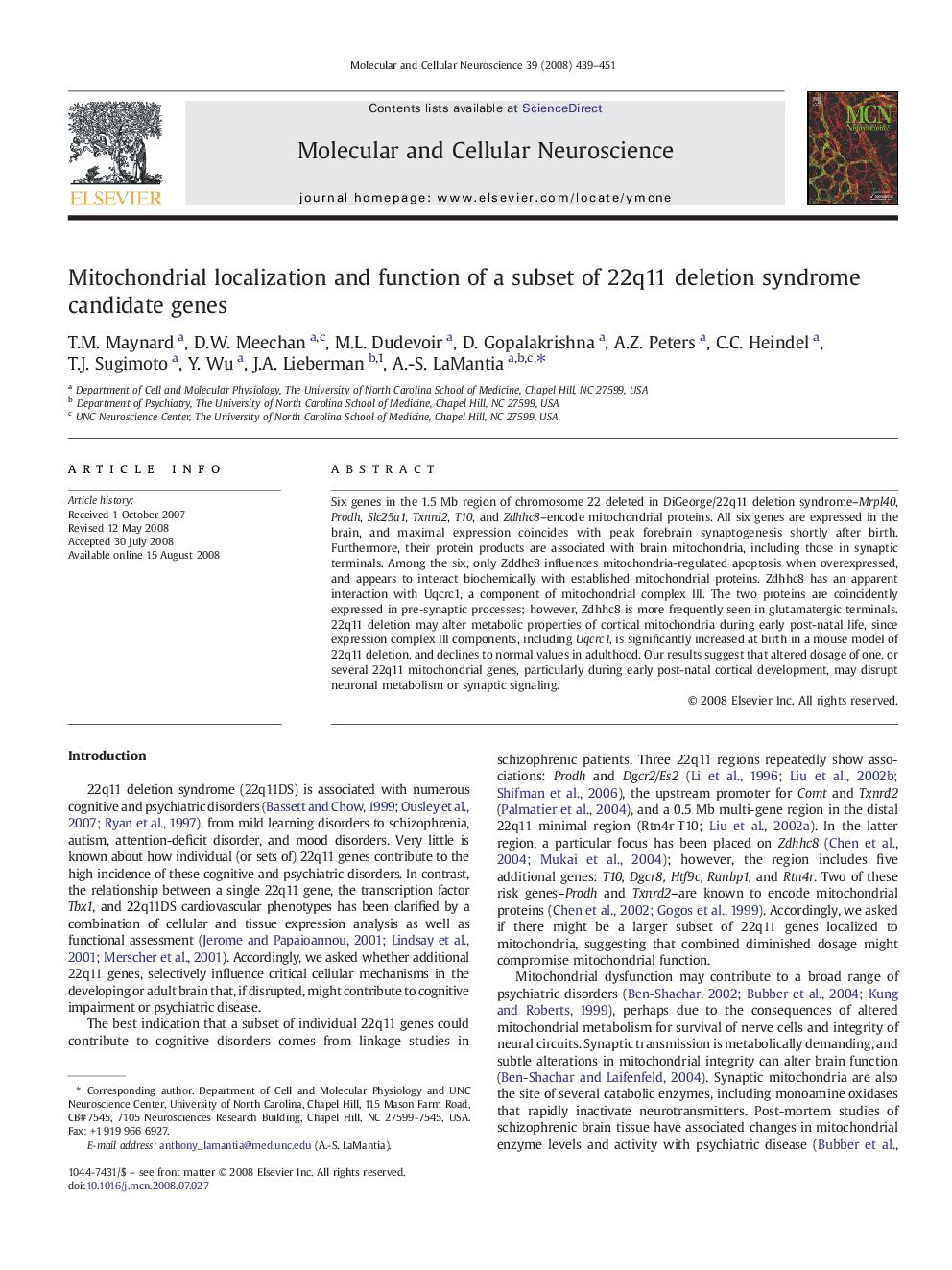| Article ID | Journal | Published Year | Pages | File Type |
|---|---|---|---|---|
| 2198987 | Molecular and Cellular Neuroscience | 2008 | 13 Pages |
Six genes in the 1.5 Mb region of chromosome 22 deleted in DiGeorge/22q11 deletion syndrome–Mrpl40, Prodh, Slc25a1, Txnrd2, T10, and Zdhhc8–encode mitochondrial proteins. All six genes are expressed in the brain, and maximal expression coincides with peak forebrain synaptogenesis shortly after birth. Furthermore, their protein products are associated with brain mitochondria, including those in synaptic terminals. Among the six, only Zddhc8 influences mitochondria-regulated apoptosis when overexpressed, and appears to interact biochemically with established mitochondrial proteins. Zdhhc8 has an apparent interaction with Uqcrc1, a component of mitochondrial complex III. The two proteins are coincidently expressed in pre-synaptic processes; however, Zdhhc8 is more frequently seen in glutamatergic terminals. 22q11 deletion may alter metabolic properties of cortical mitochondria during early post-natal life, since expression complex III components, including Uqcrc1, is significantly increased at birth in a mouse model of 22q11 deletion, and declines to normal values in adulthood. Our results suggest that altered dosage of one, or several 22q11 mitochondrial genes, particularly during early post-natal cortical development, may disrupt neuronal metabolism or synaptic signaling.
